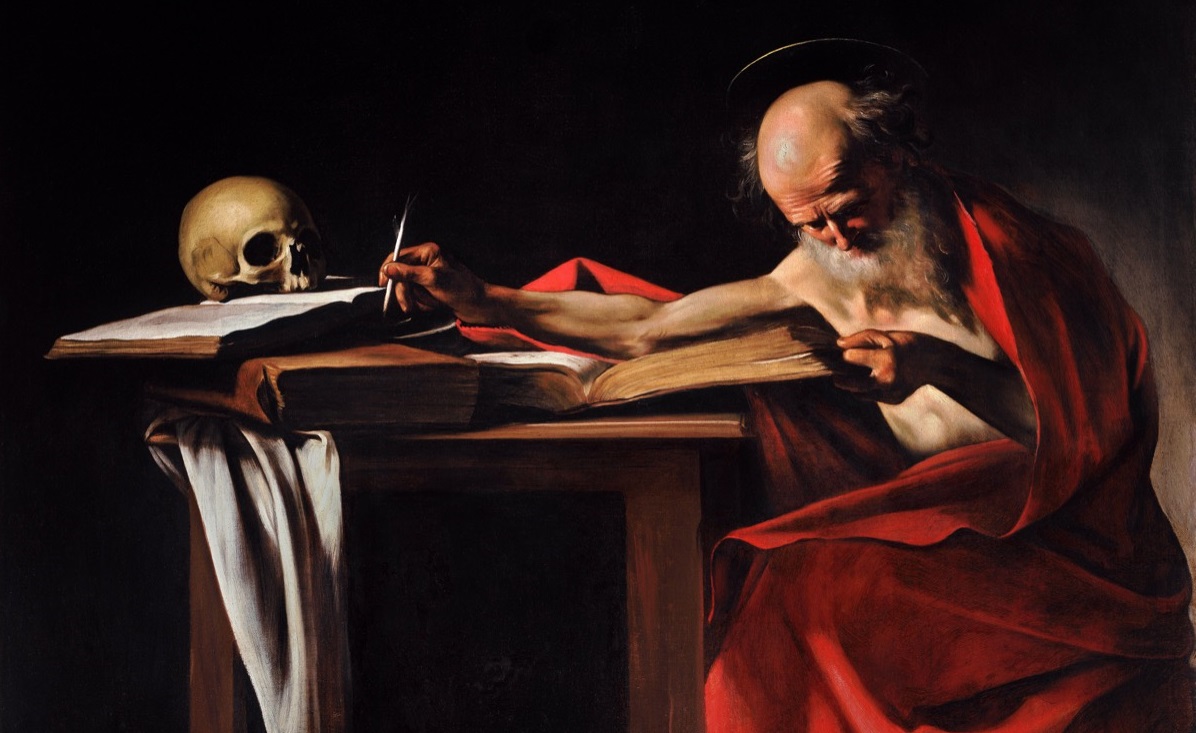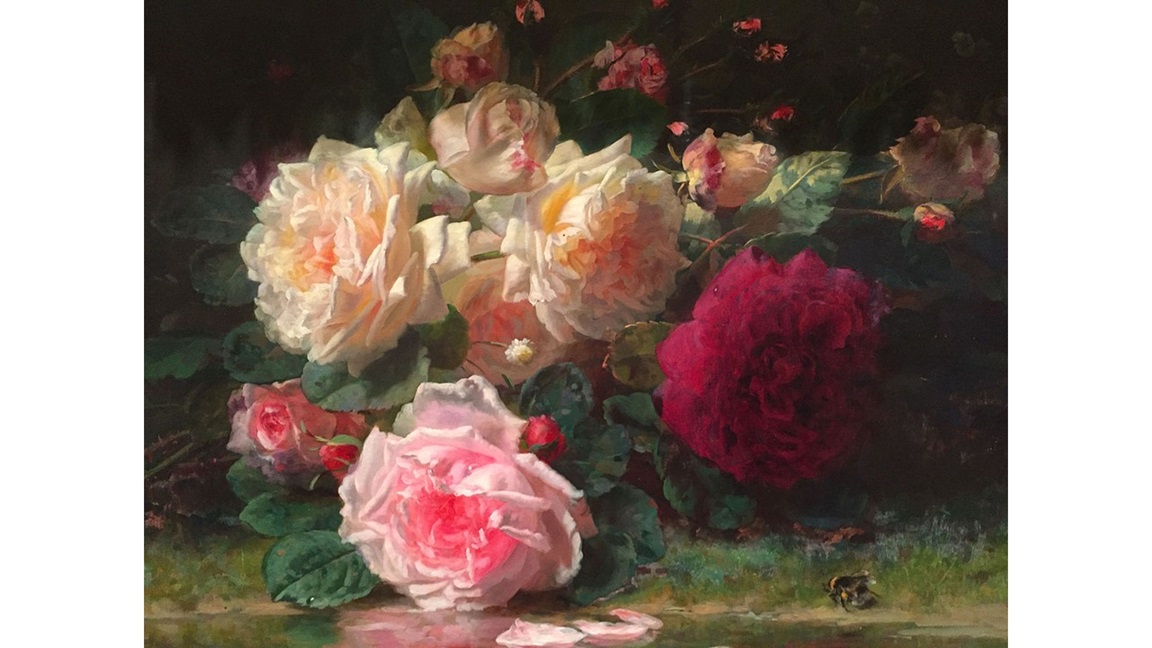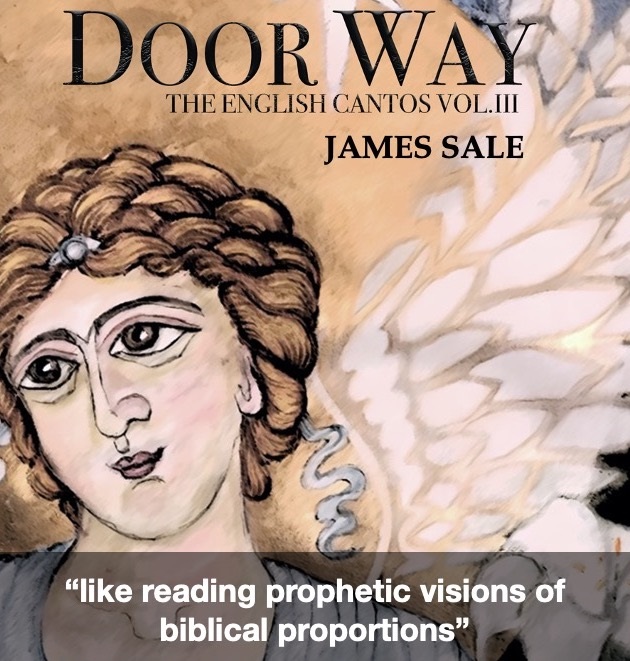.
St. Jerome’s Cicero Obsession
based on St. Jerome’s letter to his disciple
St. Eustochium in Rome, A.D. 384
When I was young and foolish long ago,
I traveled to Jerusalem alone
To fast and pray away from everyone.
My book collection I could not forgo;
With greatest toil I had made it grow.
So, when I went to pray by walls of stone—
All night, in tears, atone before God’s throne—
I’d stray from God with books of Cicero.
I took up Plautus after each day’s fast—
A garden, and a library to read,
Says Cicero, is everything we need.
The greatest Roman writers of the past
Had polished treasures, infinitely vast.
But when my soul with me would sometimes plead,
And I would read the Scriptures of my creed,
Their style seemed rough and dull; my eyes were glassed.
For weeks the devil toyed about with me,
Until a fever fell, destroyed my rest,
My prayer, my fast; by pestilence oppressed,
I turned to skin and bone quite rapidly.
I grew as cold as catacombs could be,
No warmth but deep within my throbbing breast.
A priest had made a funeral request,
For soon I’d pass on to eternity.
To my surprise, I did not die; instead,
I saw the Lord in realms of light apart.
“Yea, who and what art thou?” He asked, to start.
“A Christian priest, I worship Thee,” I said.
But Jesus frowned at me and shook His head.
“Thou liest, Ciceronian thou art,
‘For where thy treasure is, there is thy heart!’”
He had me whipped until my skin was red.
But conscience tortured me more strongly yet;
I thought, “‘Who shall confess to Thee in Hell?’”
And on my knees before my Lord I fell
And begged for mercy as I paid my debt,
So while with thrashings I was still beset,
I cried, “Dear Lord, I hereby bid farewell
To heathen books—forever I expel
Such works, for I’ve denied Thee with that set!”
When I returned to mortal earth again,
All knew it was no dream, but something real—
My shoulders, black and blue, took long to heal.
I burned my pagan books and said, “Amen,
No more shall I read lies of heathen pen!
No more shall wicked works to me appeal!”
And now I read God’s books with greater zeal
Than I had ever given books of men!
I ask, Eustochium, disciple dear,
What functions as a Cicero for you?
What makes you apathetic toward what’s true?
What makes God’s words so difficult to hear?
Whatever dulls desire to adhere
To God along with His devoted few,
Cast out as poison right upon first view,
However good and true it may appear!
.
Poet’s notes: St. Jerome (born between 342 and 347, died 420), a priest, theologian, historian, and Doctor of the Catholic Church, left behind many writings, second in quantity only to St. Augustine in the ancient Roman world, contributing greatly to Christian theology. He wrote an authoritative translation of the Bible into Latin, called the Vulgate, which is still used by the Catholic Church. Plautus and Cicero were pre-Christian Roman writers, still studied by students of the classical age. Most likely, the incident depicted in the poem heavily influenced his becoming one of the greatest Bible scholars the world has ever known.
Scripture quotes:
“Where thy treasure,” etc.: Matthew 6:21
“Who shall confess,” etc.: Psalm 6:6
.
.
Joshua C. Frank works in the field of statistics and lives near Austin, Texas. His poetry has also been published in the Asahi Haikuist Network.

















Thank you for calling attention to St. Jerome’s Cicero Obsession.” My maternal grandfather once told me that to be educated required I read the Bible and “The Rise and Fall of the Roman Empire!” He also said that novels were a waste of time. I suppose that contributed to my love for history and political science as subjects and books. I commend you on a wonderful poem inspired by the letter of St. Jerome.
Thank you, Roy. Your grandfather was a wise man.
Theodore Roosevelt was right when he said that a good, solid knowledge of the Bible is worn more than a college education (I endorse his statement as someone who has both), and we need to learn history to avoid repeating other people’s mistakes. Conversely, your grandfather was also right in that many novels, even some of the ones deemed “classics,” are, in fact, a waste of time… let alone the modern media that have replaced them for a lot of people. Your current interests show the fruits of his philosophy of education!
Josh, this is a strong dramatic monologue with St. Jerome as a most worthy speaker. You’ve chosen a very difficult rhyme scheme wherein each stanza is comprised of only two rhymes. It mirrors the choice that is before Jerome (and us!) “A or B?” “Yes or no?” “Good or evil?”and it strongly reinforces Jerome’s black and white choice between piety and secularism.
Jesus scourging Jerome is deeply disturbing – it’s certainly not the Jesus I’m used to seeing! – yet this is an essential element of the source material. You handle this difficult subject matter with skill and sensitivity.
I especially like your query “What functions as a Cicero to you?” This is a great question posed not just to Eustochium but to the reader. It is, of course, a universal question in all ages and in all places – but it timely addresses a modern world in which we are easily distracted by social media, cell phones, a thousand choices on Netflix in addition to all of the other secular distractions which have existed throughout history. It is as if the whole modern world has been designed to divert people away from a relationship with God. “What functions as a Cicero to you?” is a profound and timely challenge. Great work, Josh!
Thank you, Brian! I’m glad you like it so much.
I thought about what form he would use to speak if he were speaking English in verse, and I figured he would use Italian octaves (the first 8 lines of a Petrarchan sonnet, in iambic pentameter if in English). I hadn’t thought about your analysis of the form, but it makes sense.
It’s common these days to think of Jesus as having mercy but not justice, but He is still God, Who is infinitely just as well as infinitely merciful, an idea impossible for us finite beings to understand. After all, the Apostles’ Creed says that He will come again to judge the living and the dead, based on His own words.
You’ve correctly guessed my intention with the concluding stanza. I think you’re right that “the whole modern world has been designed to divert people away from a relationship with God.” All the way back in Genesis, we see Cain building a city (even though God said to him “a fugitive and a vagabond shalt thou be upon the earth” (4:12)), and his ungodly descendants (not Seth’s godly descendants) inventing various tools. One Amish preacher noticed this and said that cities have been getting worse ever since… I can’t say he’s wrong!
A poetic history lesson for those of us not familiar with St. Jerome and Cicero. Thanks!
You’re welcome, Paul. I’m glad you both enjoyed it and learned from it.
Nice work, Josh. The story is well told, and the question to Saint Eustochium at your poem’s end preserves the epistolary nature of your source. To anyone who worries about Jesus wielding a scourge, didn’t He do exactly that with the moneychangers in the Temple? It is remarkable that Jerome says the thrashing was so real bruises could be seen afterward.
I am interested to see that the quote from Psalm 6 agrees precisely with the Vulgate psalm, because the Psalter is the one book where Jerome’s Latin was not accepted as the Church’s official text. He argued long and hard that his was better, but the Old Latin psalms were already in such constant popular use that Jerome’s work was looked on as unfamiliar novelty. But maybe at Psalm 6:6 they happened to agree.
Thank you, Margaret! It’s nice to hear that you consider the story well told.
To answer your question, I used the Vulgate wording (Douay-Rheims in English). However, because of your question, I had to look it up. Here’s the Latin text from the letter: “In inferno autem quis confitebitur tibi?” The Vulgate uses the exact same wording. Even if it didn’t, precisely because St. Jerome was so insistent on his own translation of the Psalms, I think he would have described himself thinking that verse in his own translation. After all, when I quote French poems in English, I use my own translation (even if done on the spot), even if a famous poet has already published his own translation.
Josh, it is obvious to me that you have put a lot of work into this educative poem, and it pays off. The intricacies of the form work perfectly and the first-person persona brings an immediacy to words that breathe life into that philosophical musing: What functions as a Cicero to you?
This is a question we should all be asking ourselves during times when our moral compass has gone awry, and our children are suffering because of it. We really do need to be extra vigilant with our choices of reading material and entertainment.
Thank you for shining a light on today’s ills with this admirably wrought piece. Well done.
Thank you, Susan! As always, you’ve articulated the point of my poem very well. It did take a lot of work, with the ABBAABBA rhymes, making sure I captured everything in St. Jerome’s letter, and writing it in his voice.
Absolutely, we need to be extra vigilant about what we put into our minds! It influences us a lot more than we like to admit—if the book Uncle Tom’s Cabin influenced the American people against slavery, of course it stands to reason that today’s entertainment can influence us even more in a bad direction. I look back at some mistakes I’ve made in life that I now see were influenced by the media. Not to mention all the time we lose… this is why I had to write it. A lot of people today wouldn’t even see the problem with St. Jerome distracting himself from his calling with pagan writings.
As St. Josemaría Escrivá wrote: “Books: don’t buy them without advice from a Christian who is learned and prudent. It’s so easy to buy something useless or harmful. How often a man thinks he is carrying a book under his arm, and it turns out to be a load of rubbish!” Since I don’t always have access to someone like that, I pray for guidance before buying a book.